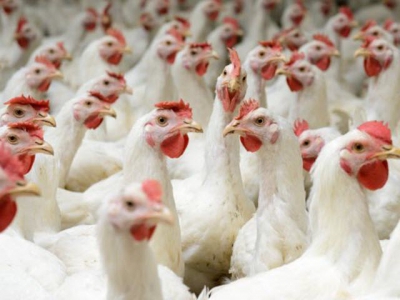Understanding of chickens environmental impact examined

National Chicken Council seeks to bridge gap between consumer perception and reality.
Further delivering on its commitment to transparency, the National Chicken Council (NCC) has unveiled the findings of its new nationwide survey about how deeply consumers understand sustainable food practices as they relate to broiler chicken production. NCC announced the new survey at the Sustainable Brands ’19 Conference being held this week in Detroit, Mich.
According to survey results, knowledge of the environmental impact of chicken among consumers is low. Only half of survey participants (51%) are moderately knowledgeable about chicken’s impact on the environment, while three-quarters (71%) are moderately knowledgeable about how chicken is produced. While most are familiar with topics related to animal welfare and processing, knowledge related to sustainability topics in the industry like water usage (20%), greenhouse gas emissions (21%) and water impact (19%) is limited.
In addition, when it comes to factors driving purchasing decisions today, the environmental impact of chicken (34%) is as important as animal welfare (37%). Of note, taste (82%) and price (65%) continue to be the top two drivers of purchasing decisions.
Bridging gap between perception and reality
According to NCC, misconceptions abound regarding the effects of chicken production on key environmental issues like pollution, water quality and transportation. Consumers surveyed believed these issues have a high environmental cost, but their knowledge and understanding of these issues was low. The survey found:
- Water issues are seen as having high environmental impact, but consumers are less knowledgeable about them.
- Water impact/water contamination (74%) and water usage (69%) are seen as high environmental costs, but current knowledge on both is low, at 34% and 36%, respectively.
- Greenhouse gas emissions and shipping are seen as having a moderate environmental impact, but most consumers also have significantly less knowledge than average about these practices for chicken production.
Seeing it firsthand
In conjunction with the sustainability survey, NCC also created a video that offers consumers, foodservice experts and others a look into chicken farmers and their various sustainability practices. The newly released video is available online here.
“As sustainability in agriculture continues to be a hot topic among U.S. shoppers, benchmarking perceptions and attitudes related to broiler chicken production and its impact on the environment is key to helping the industry better communicate with consumers,” NCC spokesperson Tom Super said. “Based on what we hear, we can deliver accurate information to consumers and influencers in ways that will help them better understand industry-wide welfare and environmental standards that are core to the American-raised chicken they buy and eat.”
Related news
 New tools, challenges for poultry farm insect control
New tools, challenges for poultry farm insect control Insect control is an important part of poultry farm biosecurity programs and can help prevent nuisance lawsuits from neighbors.
 Recruiting the next generation of poultry professionals
Recruiting the next generation of poultry professionals The US Poultry & Egg Association is sponsoring programs to teach young people about the poultry industry and hopefully increase interest in working in the field
 Chicken gene edit prevents avian flu virus spread
Chicken gene edit prevents avian flu virus spread In laboratory-grown chicken cells, deleting section of DNA prevented avian flu virus from spreading.